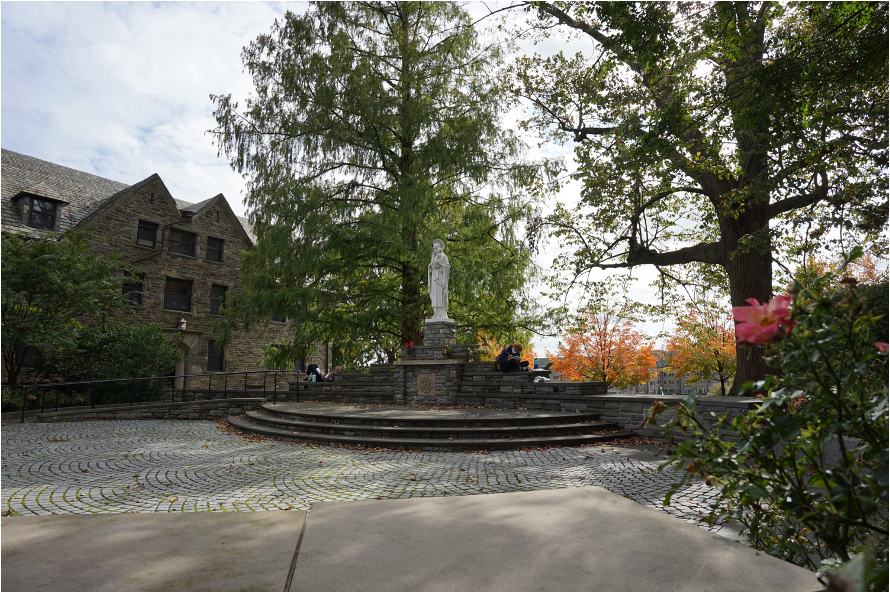The University’s Spring Schedule and Student Disdain
The University’s Spring Schedule and Student Disdain
October 28, 2020
The honeymoon phase is over. That first month at the University was filled with the anxious excitement of meeting new people, being in a new place and trying new things. Like all good things, the low workload of the first month of college did come to an end. This is to be expected. We are here to work and study, and for the most part, it has been manageable.
Then came midterm week, or rather, the three weeks in my schedule that were sporadically filled with papers, tests and projects. Getting through that was a victory in and of itself, but the relief was short-lived, as we were immediately thrown back into our normal workload with no break in sight.
My mindset coming into my freshman year at the University was largely influenced by the pure gratitude I had towards the school for allowing us to live on campus this semester. To me, it seemed completely worth it to have no breaks the whole semester because I was just thankful to be here. Very quickly, I realized the happiness of being here would not overpower the level of stress and feeling of burnout that’s been all-consuming since midterms.
We are drained; the schoolwork that was exciting and engaging in the beginning has become monotonous and unappealing. While I am appreciative of the professors who have given us a day or two off from homework, it is not enough to negate how genuinely overwhelmed and exhausted I am with my academics.
“The first month, I was on top of everything, but now it’s like a tidal wave of work and stress,” freshman Senator Thomas Dessoye said.
In similar conversations with my peers, the message is consistent: The feeling of burnout is undebatable and needs to be addressed.
I was hopeful that the University would see the effects of having a break-less semester on the student body and empathize by creating a spring semester schedule that presented more time off, but I was supremely disappointed. Other than the Friday before Easter, there are no scheduled days off.
More than anything, this schedule is invalidating and ignorant of the level of fatigue throughout the community, which is exacerbated by the stress of being in the midst of a pandemic.
Furthermore, the mental health of students should not be disregarded as a factor when constructing the spring semester calendar.
When asked if she thought the University’s schedule was inconsiderate towards student morale, freshman Kara Miller responded, “Definitely. The burnout this semester is terrible. I can’t believe we’re going to do this again next semester with even harder classes.”
Non-stop work has already created an evident strain on the mental health of the community. This needs to be taken into consideration by the University as it evaluates and assesses reactions to this new schedule. It is unreasonable to be expected to continuously perform at our highest capacity when we are given virtually no time off to recharge.
I understand the University’s wish to minimize travel to avoid a rise in COVID-19 cases. Frankly, getting rid of some longer weekends and Spring Break is not going to stop people from traveling if they want to. However, if avoiding travel is the University’s primary reason for eliminating breaks, I have a couple of suggestions that could make everyone happy.
I think the University should implement a few long weekends into the spring semester; give a consecutive Friday and Monday off here and there. This would be best suited in March around the time of midterms. This way, it minimizes the opportunity for extended travel because the “break” is only four days.
My second suggestion is having days in the middle of the week off throughout the semester. A Tuesday or Wednesday interspersed throughout would be instrumental in providing students with much needed time to relax and revive as well as get caught up on work.
In my short time here, I recognize Villanova as a community of compassion, where staff and students alike have authentic respect for one another. The University generally listens and considers the opinions of the student body, especially if they are widespread. I hope that they continue in this manner and reevaluate the spring, taking into thought the mental well-being of the community as a whole.



